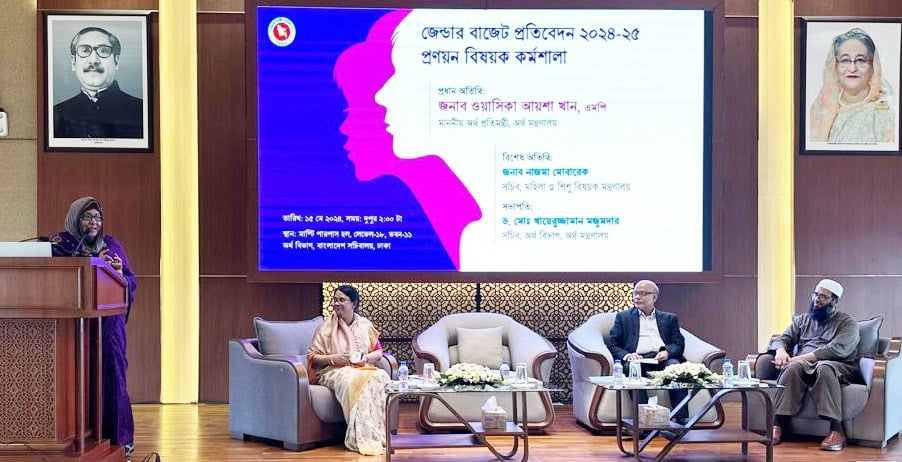
DHAKA, May 15, 2024 (BSS) – State Minister for Finance Waseqa Ayesha Khan today
underscored the need for implementing gender budgets effectively for building smart
Bangladesh.
“Gender budgets should not only be formulated, but also implemented effectively,” she said
while speaking at a workshop on Gender Budget Report 2024–25 Preparation held at the Finance
Division in the capital as the chief guest.
She said that discrimination can be eliminated through the formulation of a gender budget and its
effective implementation.
Noting that the empowerment of women is essential to keeping pace with sustainable
development, she said the Awami League-led government is working on women's empowerment,
giving special importance to it.
She hoped that the gender budget could make a special contribution to advance women in
workplaces or economically backward areas.
The state minister said that Father of the Nation Bangabandhu Sheikh Mujibur Rahman had
made sufficient allocations for the development of women in the 1972 budget .
"Bangabandhu knew that the development of women is necessary to advance the country
financially,” she added.
Presided over by Secretary Finance Division Dr Md Khairuzzaman Mozumder, the workshop
was addressed by Women and Children Affairs Secretary Nazma Mobarek as a special guest.
Mohammad Saiful Islam, Additional Secretary, Budget-1, Finance Division, Ministry of Finance
and National Program Director of Strengthening Public Financial Management Program to
Enable Service Delivery (SPFMS) gave a welcome address.
A presentation on the Gender Budget Report 2024–25 was made by Mahedi Masuduzzaman,
Joint Secretary Finance Division, where five thematic areas with gender relevance have been
identified, including women’s empowerment and social status enhancement; economic
participation and equality, increase women’s effective access to public services; education, health
and well-being for women’s development.
The presentation also underlined the challenges for women in Bangladesh, including labour force
participation, income disparity, workplace challenges, reproductive health rights, nutritional
issues, early marriages and harassment.